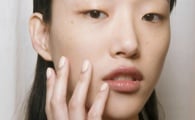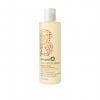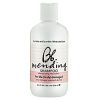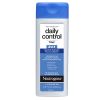Hair Care
How Often Should You Wash Your Hair, Really?Eight questions to ask yourself before you shampoo |
First, Some Myth-Busting Before we get to these insanely important questions about lathering, rinsing and repeating, let's start by debunking some oft-repeated beauty advice: Frequent shampooing makes your scalp produce more oil; or, alternatively, that you can train your scalp to produce less oil by washing infrequently.
"This is a myth," says top dermatologist Dr. Elizabeth Tanzi, founder and director of Capital Laser & Skin Care and assistant clinical professor of dermatology at the George Washington University Medical Center. "Hair produces oil regardless of washing."
Dr. Francesca Fusco, dermatologist at Wexler Dermatology, agrees: "Oil production is under hormonal control." So, while your scalp's oil production varies over time, it's not dependent on how much you wash your hair. Anabel Kingsley, trichologist at Philip Kingsley, agrees: "The scalp usually becomes oilier during puberty, in times of intense stress and also during ovulation." Perhaps due to the enduring myth, shampoo's reputation has suffered. But experts agree there's nothing wrong with the suds-and-water routine. Not only are shampoos chemically formulated for regular use, water plays a vital role in healthy hair, constituting about 15 percent of its weight. "It is actually water, not oil, content that keeps strands elastic and pliable," says Kingsley.
Image via Getty
SEE NEXT PAGE: What's Your Hair Texture?
"This is a myth," says top dermatologist Dr. Elizabeth Tanzi, founder and director of Capital Laser & Skin Care and assistant clinical professor of dermatology at the George Washington University Medical Center. "Hair produces oil regardless of washing."
Dr. Francesca Fusco, dermatologist at Wexler Dermatology, agrees: "Oil production is under hormonal control." So, while your scalp's oil production varies over time, it's not dependent on how much you wash your hair. Anabel Kingsley, trichologist at Philip Kingsley, agrees: "The scalp usually becomes oilier during puberty, in times of intense stress and also during ovulation." Perhaps due to the enduring myth, shampoo's reputation has suffered. But experts agree there's nothing wrong with the suds-and-water routine. Not only are shampoos chemically formulated for regular use, water plays a vital role in healthy hair, constituting about 15 percent of its weight. "It is actually water, not oil, content that keeps strands elastic and pliable," says Kingsley.
Image via Getty
SEE NEXT PAGE: What's Your Hair Texture?



































